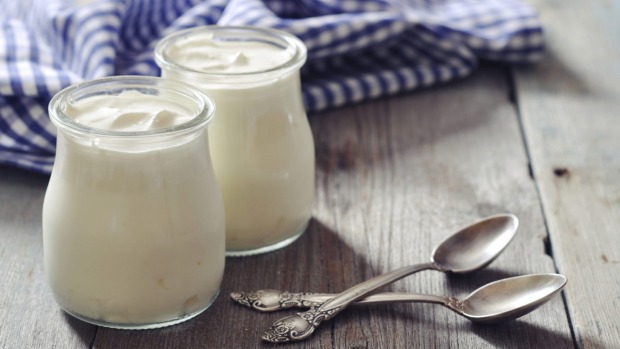
There is little evidence to suggest the “friendly bacteria” contained in popular probiotic drinks, yoghurts and supplements has any effect on healthy people, a review of current research by a Danish team of academics has found.
The researchers found “no convincing evidence exists for consistent effect of examined probiotics on faecal microbiota composition in healthy adults” when they reviewed the results of seven randomised trials of probiotic products and supplements.
Probiotics are often described as “good”, “healthy” or “friendly” bacteria that can reduce bloating, improve digestion and gut health.
Australian supermarket and pharmacy shelves are full of them, ranging from supplements for children to yoghurts and other drinks and biscuits.

The website of yoghurt maker Danone claims, for example, that its Activia range contains the probiotic BifidusActiRegularis, which delivers “billions of active Bifidus ActiRegularis® probiotics” to improve digestive comfort.
Yoghurt drink company Yakult claims probiotics – live beneficial bacteria – reduce the number of potentially harmful bacteria that exist naturally in the digestive system.
When researchers at the Novo Nordisk Foundation Centre for Basic Metabolic Research at the University of Copenhagen reviewed the results of randomised controlled trials of probiotic products on the faecal microbiota of healthy adults, they found little evidence of any change.
Professor Oluf Pedersen, the lead author, said that, while previous studies had suggested some probiotic interventions could help those people who had imbalances of the gut caused by diseases, there was little evidence of any benefit in people who weren’t sick.

He said said there was a major need for more research.
“To explore the potential of probiotics to contribute to disease prevention in healthy people, there is a major need for much larger, carefully designed and carefully conducted clinical trials. These should include ideal composition and dosage of known and newly developed probiotics combined with specified dietary advice, optimal trial duration and relevant monitoring of host health status.”

The Danish team reviewed the results of seven trials of probiotic products, including biscuits, milk-based drinks, sachets and capsules.
The researchers investigated the effect of probiotics on the overall structure of the faecal microbiota of healthy adults, including the number of species present, and the evenness (distribution of species within the populations). It also looked at whether those taking probiotics experienced changes in the bacteria living in the gut than the placebo groups.
Of the seven randomised trials, only one observed significantly greater changes in the bacterial species composition of the faecal microbiota in individuals who consumed probiotics compared with those who did not.
The research was published in .
Julie Gilbert, an accredited dietitian and spokesperson for the Dietitians Association of Australia, said the study confirmed that probiotics were not beneficial to healthy populations. The best evidence of any benefit, so far, came from the use of probiotics for those people with irritable bowel syndrome or those who had been taking antibiotics for some time.
If consumers were considering taking a probiotic, Ms Gilbert said they should opt for whole foods instead of supplements, because they contained other nutritional benefits. Yoghurts, for example, are high in calcium, which is good for bone density.
“People think, ‘Take a pill and I will be a fine.’ But the answer can lie in good everyday food,” she said.
Unless you were ill, healthy people were better off eating more whole foods that would improve gut flora, while improving bone density and helping to maintain healthy weight, she said.
Consumer group Choice said the evidence of the benefits of probiotics in yoghurt had been difficult to validate scientifically. It said the word “probiotics” had been banned on packaging in Europe because it implied a health benefit, although individual strains of bacteria might be mentioned.

A spokesman for Choice said the problem with probiotics was that there were many factors that affect whether the bacteria survive.
“Some products list the number of probiotic cultures on the packaging, which reflects the amount of bacteria added at the time of production. But bacteria can be affected by storage, air, light and moisture and there’s no guarantee that the bacteria survives in the probiotic and during consumption to colonise the gut. Many products don’t list the number at all.”
Choice reported that in 2008, a class-action lawsuit in the US claimed Danone overstated the health benefits of its Activia yoghurt by claiming it could strengthen the body’s defences or regulate digestion because of bacteria it contained. Danone settled out of court for $US35 million and changed the wording on its packaging.
No comment was available from probiotic yoghurt companies.
